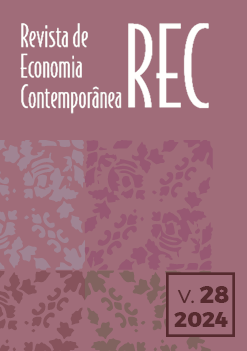Income inequality in Brazil (2012-2019): an approach based on PNAD-Contínua and IRPF declarations
Keywords:
Income inequality, Wealth inequality, Tax progressivity, Income taxAbstract
This study focuses on economic inequality in Brazil (2012-2019), adopting a methodology widely used in international literature. Our contributions include combining two data sources (PNAD-C and IRPF) and two distinct methods: Generalized Pareto Interpolation (GPI) and Minimum Difference Aggregation (MDA). Results show a structural economic inequality in Brazil with a level of concentration of current income significantly higher than that in studies that use household surveys as exclusive sources. Moreover, the Brazilian tax structure has contributed to the perpetuation of a significant equity inequality, consolidating, at the top of the distribution, a segment of the population whose current income is inexpressive for its spending potential.
Downloads
Downloads
Published
Issue
Section
License
Copyright (c) 2024 Cassiano José Bezerra Marques Trovão, Claudio Salvadori Dedecca

This work is licensed under a Creative Commons Attribution 4.0 International License.


